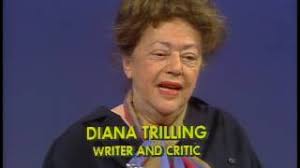43. Jean Stafford
“(No, but go on.)” -Jean Stafford
There,
in four words—given their own paragraph and set off in parentheses—is the
journalist’s ultimate expression of contempt for her subject. It’s 1965 and Jean
Stafford, retired novelist and short story writer, is in Fort Worth to
interview Marguerite Oswald, the mother of Kennedy assassin Lee Harvey. She is
there, she tells us, under the premise that the “child is the father of the
man” and that by speaking with her about Lee’s upbringing, she can gain deep
insight into the mind of the deceased killer. Marguerite, meanwhile, is
determined to clear her son’s name and is happy to spin her muddled musings for
anyone who will listen.
And so, as detailed in Stafford’s 1966 book A Mother in History (much of which
originally appeared in McCall’s the year before), they sit down in
Marguerite’s house, modest but clean, and Marguerite talks. She tells Stafford
that her son was willingly sacrificed by the U.S. government and should be
proclaimed an American hero. She claims to have reams of evidence that she will
produce in time and shake up the world. She finally invites Stafford to live at
her house and write up her material into a book. And Stafford sits there,
non-comprehending and dismissive. She admits her confusion to the reader but
she doesn’t make any attempt to sort out Marguerite’s admittedly tortuous
logic. She signals her dismissiveness frequently. When Marguerite pauses her
breathless monologue to ask rhetorically, “Am I making it plain?” Stafford gives
us her flippant parenthetical before returning to dutifully jotting down the
rant of which she doesn’t believe a word.
The
present-day reader may be inclined to be a bit more generous. Stafford is
decidedly non-conspiracy minded, as she tells us more-or-less explicitly early
on and by her attitude throughout, but it’s hardly a radical position any
longer to disbelieve in the official narrative of the lone gunman. What isn’t
clear is Stafford’s motivation in taking on the project. Do we take her at her
word about the Wordsworthian child/father/man business and her quest for
understanding? Was it simply an assignment for pay? While Stafford does find
things to admire about Marguerite (mostly her neat housekeeping, Southern
manners, and competent driving), she extends little sympathy or real interest
to a woman who is definitely interesting and is probably, in spirit if not in
fact, largely correct. Perhaps, today, we expect a certain degree of fellow
feeling in our celebrity profiles that Stafford simply didn’t feel bound by,
but even if you find Marguerite’s ramblings not worth engaging at any level,
her obsessive efforts can’t help but reveal her in another, far more piteous
light: that of a woman driven to distraction by the death of her son.
The real
clue to Stafford’s attitude may come in the brief epilogue, probably the best
part of her strange little book. As she catches a plane from Texas to New York,
her mind turns, as she tells us it always does while flying, to matters of life
and death, and for her, this means to the day of the Kennedy assassination two
years earlier. She recalls the streets of Manhattan being deserted, the phone
lines all tied up, the despairing voice of her sick husband when she finally
gets through to him at his office. She sleeps badly and doesn’t recover her
equilibrium. “For days we went about our business like somnambulists,” she
writes. The whole thing takes on a quality of cosmic despair, an aggrieved
reverie, and we understand, in that moment, Stafford’s perspective, for even
those of us who didn’t live through the assassination have had occasion to
witness more recent analogous events. Embarking on her project with the stated
goal of understanding, Stafford, haunted by the twin horrors of the
assassination and her husband’s decease just a month later, can only be
expected to bend so far. It is, we understand finally, an attitude born of
grief. A Mother in History is death-haunted through and through, even if
it doesn’t become fully apparent until the very final page.



Comments
Post a Comment